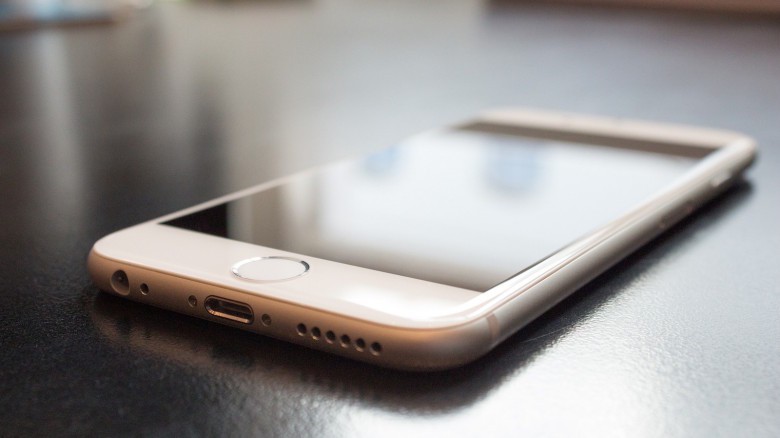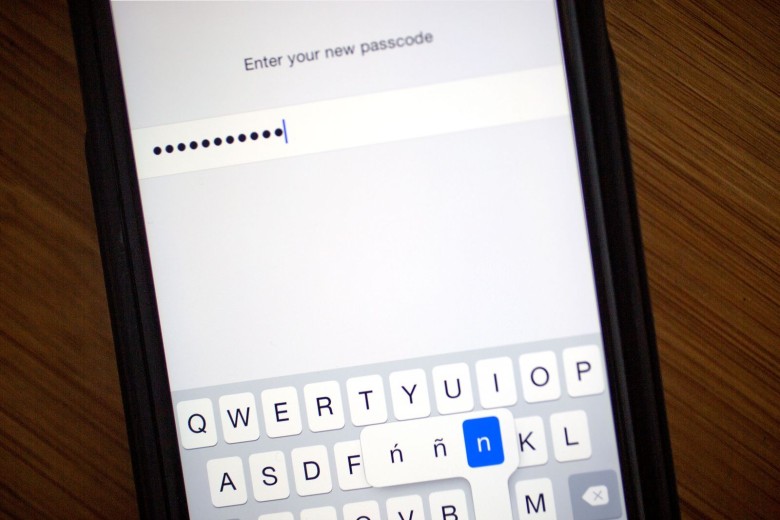Apple’s fight against the FBI continues to dominate headlines, with the company standing firm to protect its beliefs and the privacy of its users. But should it really be doing more to help law enforcement agencies?
 No one who uses Apple products wants it to compromise the security of iOS by creating dangerous backdoors, but should it be working to find a safer solution that would provide the FBI with information when it’s needed?
No one who uses Apple products wants it to compromise the security of iOS by creating dangerous backdoors, but should it be working to find a safer solution that would provide the FBI with information when it’s needed?
Join us in this week’s Friday Night Fight between Cult of Android and Cult of Mac as we battle it out over this hot topic — and be sure to weigh in at the end with your opinion!
 Luke Dormehl (Writer, Cult of Mac): After a couple of weeks away, it’s great to be back, Killian. Nothing like a battle of wits (or, well, whatever the equivalent is among Android users) to finish off the first week back at the grindstone in top fashion!
Luke Dormehl (Writer, Cult of Mac): After a couple of weeks away, it’s great to be back, Killian. Nothing like a battle of wits (or, well, whatever the equivalent is among Android users) to finish off the first week back at the grindstone in top fashion!
So clearly the FBI’s battle with Apple regarding creating a backdoor in iOS is the biggest subject of the week — and may well turn out to be the biggest tech story of the year and Tim Cook’s ultimate legacy at Apple.
It’s a complicated issue, but ultimately Apple’s fighting on the side of the angels here. It’s not just about the specifics of this one case: I don’t think a single person reading this is likely to support terrorism and want the FBI to be compromised in serving justice in this instance. The problem is about the precedent it would set if Apple helps break its own encryption.
We’ve never reached an inflection point like this before, and Apple’s strong stance in favor of end-to-end encryption is a battle about the future of technology. If Apple is forced to compromise its principles here, which the vast majority of its users are behind, it could have seismic repercussions.
But I understand you, to coin an Apple tagline, think different. How so?
 Killian Bell (Writer, Cult of Android): I know this is an incredibly controversial topic, so let’s get one thing straight: I completely agree that the FBI’s request is unreasonable. Apple should not create custom firmware to bypass passcode locks that has the potential to be exploited, not only by governments and law enforcement agencies, but also by malicious hackers.
Killian Bell (Writer, Cult of Android): I know this is an incredibly controversial topic, so let’s get one thing straight: I completely agree that the FBI’s request is unreasonable. Apple should not create custom firmware to bypass passcode locks that has the potential to be exploited, not only by governments and law enforcement agencies, but also by malicious hackers.
But I do believe the company must find another solution that would allow it to provide the FBI and other authorities with access to user data in a secure manner under exceptional circumstances.
I’ve emphasized those three words because I want to make it clear that I do not support snooping. I am against a Big Brother state. I don’t want the police sifting through my holiday snaps and private conversations without good reason just because they can. But if they do have a legitimate reason, I think Apple should make it easier — not harder — for them to do so.
The information stored on iOS devices owned by criminals and terrorists has the potential to save lives. Blocking access to data that could foil terrorist attacks — just to prevent someone from seeing our personal information — is unethical, and it poses a risk to our security.
If a guy living in my town was a suspected terrorist, and the police had good reason to believe he was planning to carry out an attack, I’d want them to have access to all the data they need to prevent that. And I don’t think anyone who’s against terrorism wouldn’t want the same.
Law enforcement agencies aren’t interesting in accessing your data unless they have genuine reasons to do so. They don’t have the time or the resources to spy on us all for no reason. And if you’ve given them a reason to believe you’re a terrorist — and a threat to innocent people — then you don’t deserve privacy.
I think Tim Cook is right to fight against backdoors in Apple’s software. They are risky, and they should not exist. But Apple is capable of creating a safe alternative, and it should.

Photo: Olly Browning/Pixabay
 Luke: Ugh. Honestly, Killian, I expected better of you! There are so many problems with what you’re saying here.
Luke: Ugh. Honestly, Killian, I expected better of you! There are so many problems with what you’re saying here.
The first one is obviously a case of precedents being set. Once Apple is made to help unlock one iPhone as part of an investigation, it’s far easier for the argument to be made that they should the next time a similar case comes up. And the idea of “exceptional circumstances” as you put it can be eroded easily. What are those circumstances? It would be an easier argument to make if you said something like “We’ll only ever unlock the phone of one person if not doing it guarantees the death of innocent people,” but surely you can see how that quickly enters a gray area?
Secondly, once a backdoor has been added, it can be exploited by people other than the good guys — and that is if we’re assuming the government always constitute the good guys.
Finally, and most significantly, how much evidence do we have that the trade-off is worth it in terms of security vs. privacy? You may have other examples, but all I see when I look at how much good Section 215 of the Patriot Act did — which opened the door to the massive amounts of government snooping we face today — is how little it actually achieved in terms of avoiding acts of terrorism.
I do, unfortunately, believe that at some point Apple may capitulate to government demands, but I think there’s nothing we should be prouder of than that a giant company like Apple is actually acting in the interests of its users — and not helping turn this into a Big Brother society after fear-mongering words like “terrorism” are thrown around.
The FBI has been raging about Apple’s end-to-end encryption since the moment Apple introduced it, and I think most people can see that this case just represents a chance for it to finally try and leverage Apple to create the backdoor it’s always wanted.
 Killian: Luke, you’ve totally missed my argument here.
Killian: Luke, you’ve totally missed my argument here.
I just stated pretty clearly that I am against backdoors, and that Apple shouldn’t unlock this iPhone in the manner being requested by the FBI. Again, it’s incredibly dangerous to create firmware that bypasses passcode locks, and I think Apple is right to fight that. It’s commendable that the company is standing up for what it believes in.
But why shouldn’t there be a better solution? Why can’t Apple — and other companies — say, “okay, we’ll give you the data you need, but you’ll have to send the iPhone to us and we’ll extract it.” That would negate the need for a backdoor that could be exploited, and it would ensure the FBI and other agencies only get the data they require.
It’s hard to tell whether mobile phone data has been successful in fighting terrorism, because it’s not easy to find the evidence; governments and law enforcement agencies aren’t keen to disclose things like that. But this data certainly can’t be unhelpful.
Just because one report says it hasn’t helped the FBI, it doesn’t mean cellphone data hasn’t prevented terrorist attacks and other crimes in other countries. And let’s not forget it’s not just about terrorism; this data could also stop other organized crimes, take pedophiles off our streets, and more. The more information intelligence agencies have to play with, the more effective they’re going to be at protecting the innocent.

Photo: Jim Merithew/Cult of Mac
 Luke: But I’m asking whether that’s actually the case — or whether it’s an unforgivably high cost for people giving up their privacy. Because that’s certainly what it feels like.
Luke: But I’m asking whether that’s actually the case — or whether it’s an unforgivably high cost for people giving up their privacy. Because that’s certainly what it feels like.
The problem with your argument is that you want to have your cake and eat it: you don’t want to live in a Big Brother society, but next thing you’re saying is that the more information governments get their hands on (and you interestingly used the phrase “to play with”), the safer we all are. I don’t want to accuse you of scaremongering, but…
So what’s the “better” solution you have? And how does that help in a specific case like this where the FBI is clear about what it wants Apple to do — and it’s not to create a magical “better” solution at some unspecified point in the future.
 Killian: Well, I don’t agree that there can’t be a middle ground that helps law enforcers capture criminals while maintaining the privacy of the innocent. And you keep accusing me of “scaremongering,” but I think it’s totally acceptable to be concerned about terrorism and organized crime. I’m not saying we should live in fear of it every day, but we shouldn’t be turning a blind eye to it, either. If we can make changes that help make the world a safer place, let’s do it.
Killian: Well, I don’t agree that there can’t be a middle ground that helps law enforcers capture criminals while maintaining the privacy of the innocent. And you keep accusing me of “scaremongering,” but I think it’s totally acceptable to be concerned about terrorism and organized crime. I’m not saying we should live in fear of it every day, but we shouldn’t be turning a blind eye to it, either. If we can make changes that help make the world a safer place, let’s do it.
I’ve already suggested one solution. I’m not saying it’s a perfect one — there are obviously downsides to that and hurdles to overcome — but it’s not my job to come up with a solution. As you mentioned earlier, there is a concern that Apple will be forced to give in later, and the government gets its own way. But if we can find a better process in the meantime, that may not need to happen.
On that note, I think it’s time you and I passed this one over to the readers. How do you feel about this? Is there a middle ground between backdoors and encryption? Should Apple and other companies find a better solution that help the FBI and others? Let us know down in the comments.
![Our Android guy says Apple should help the FBI [Friday Night Fight] fnf-fbi](https://www.cultofmac.com/wp-content/uploads/2016/02/fnf-fbi.jpg)

